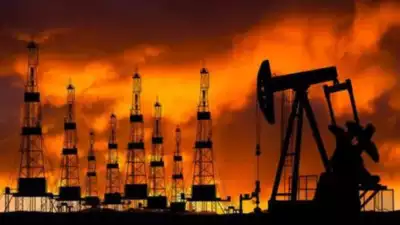Amidst the tumultuous backdrop of escalating tensions in West Asia, India finds itself grappling with a profound energy dilemma. The recent exchange of hostilities, including Iran’s missile strikes and the seizure of an Israel-owned tanker with Indian crew, serves as a stark reminder of India’s deep-rooted dependency on foreign oil and gas markets.
India’s thirst for energy is voracious, with approximately 4.7 million barrels of crude oil per day and 45 percent of its natural gas demand sourced from imports. These imports constitute a staggering 88 percent of the nation’s overall requirements, laying bare the extent of its vulnerability to geopolitical disruptions in oil-rich regions.
The implications of this dependency are manifold. Firstly, India’s energy security hangs precariously in the balance, subject to the whims of global politics and regional conflicts. Any disturbance in the West Asian oil markets sends shockwaves through India’s economy, impacting everything from transportation costs to inflation rates.
Moreover, the spiraling prices of crude oil pose a significant threat to India’s fiscal health. As a net importer, India faces the brunt of soaring oil prices, which can exert immense pressure on its current account deficit and currency valuation. The recent volatility in oil prices, exacerbated by geopolitical tensions, underscores the urgent need for India to diversify its energy sources and bolster domestic production capabilities.
Beyond the economic ramifications, India’s geopolitical maneuverability is also constrained by its reliance on foreign energy supplies. The country’s foreign policy calculus is often intricately tied to its energy security concerns, compelling it to navigate a delicate balancing act in its diplomatic engagements with oil-rich nations. The specter of being held hostage to the interests of energy suppliers looms large, curbing India’s autonomy in shaping its foreign policy objectives.
In light of these challenges, India must pursue a multifaceted approach to mitigate its energy vulnerabilities. Firstly, there is an imperative need to accelerate efforts towards renewable energy adoption and energy efficiency measures. By reducing reliance on fossil fuels, India can insulate itself from the volatility of global oil markets and enhance its energy resilience.
Simultaneously, India must explore avenues for diversifying its energy sources and supply routes. Strengthening partnerships with alternative energy exporters, such as the United States and Russia, can offer greater flexibility in sourcing energy resources and mitigate the risks associated with dependence on a few key suppliers.
Furthermore, enhancing domestic production capabilities and investing in strategic oil reserves are pivotal steps towards bolstering India’s energy security. By augmenting domestic refining capacities and storage infrastructure, India can cushion itself against external supply disruptions and ensure uninterrupted access to essential energy resources.
In the realm of foreign policy, India must adopt a pragmatic and nuanced approach towards West Asian geopolitics. Balancing its engagements with rival regional powers while safeguarding its energy interests is paramount. By fostering constructive dialogue and diplomatic initiatives, India can play a proactive role in de-escalating tensions and promoting stability in the region.
The West Asian conflict serves as a poignant wake-up call for India, underscoring the urgent need to recalibrate its energy strategy in the face of evolving geopolitical dynamics. By embracing innovation, diversification, and strategic foresight, India can chart a course towards energy security and assert its position as a global player on the world stage.









